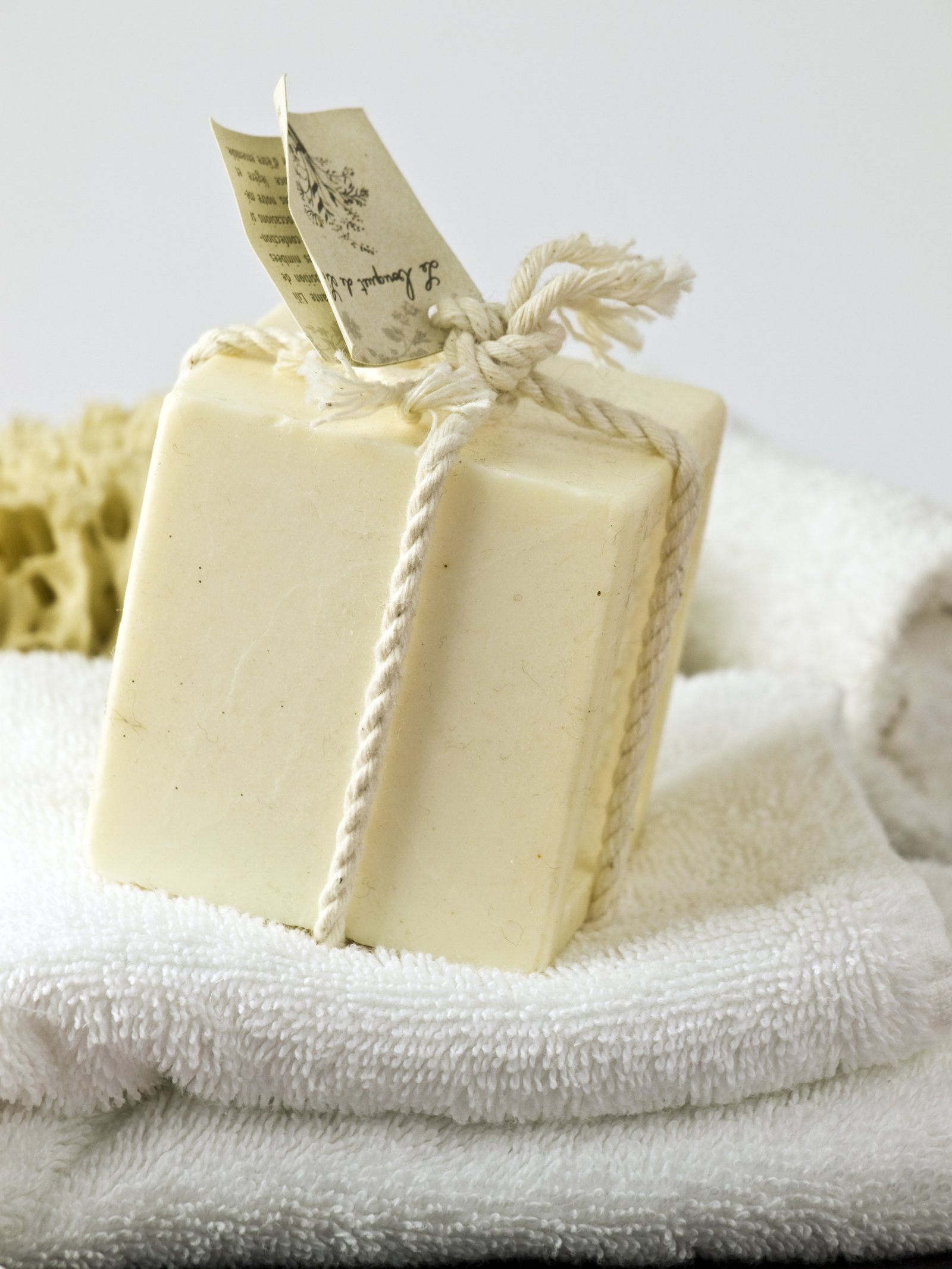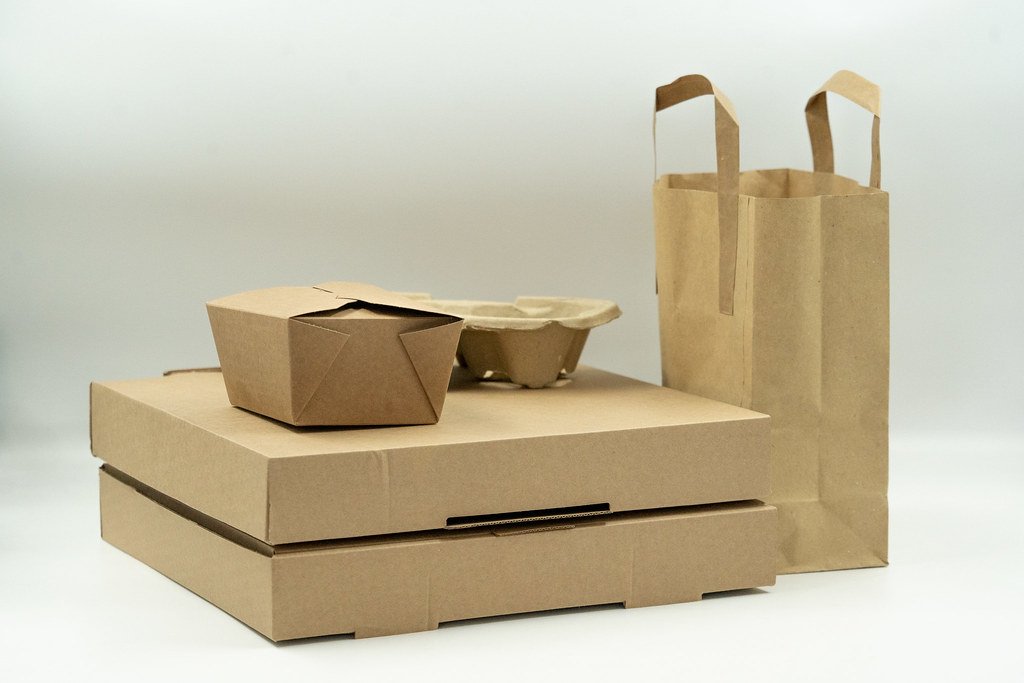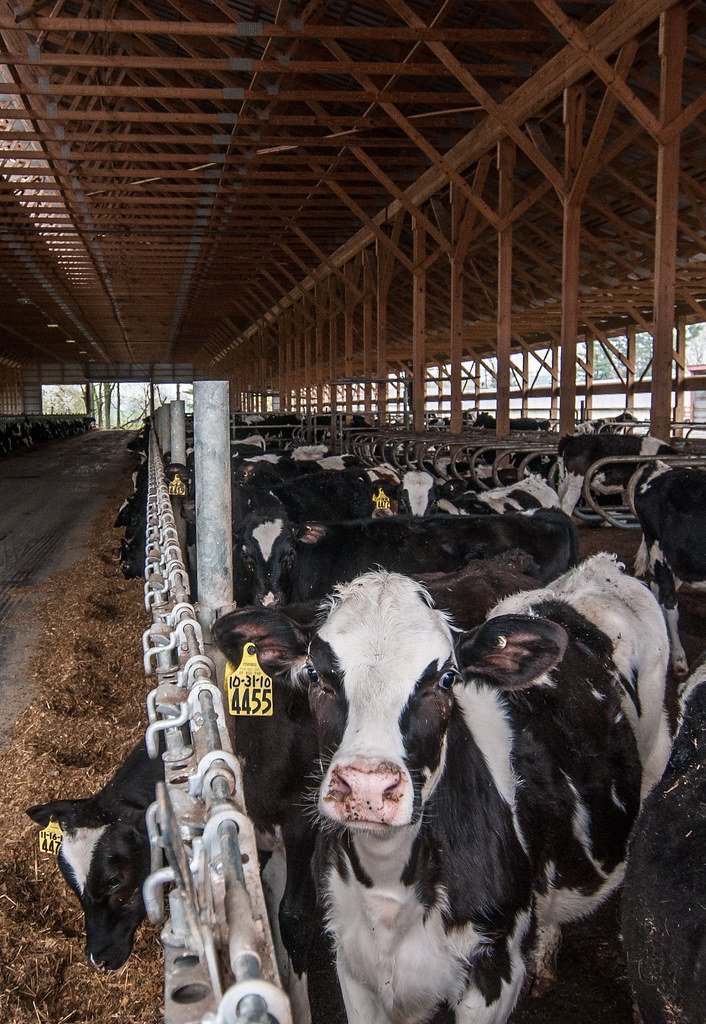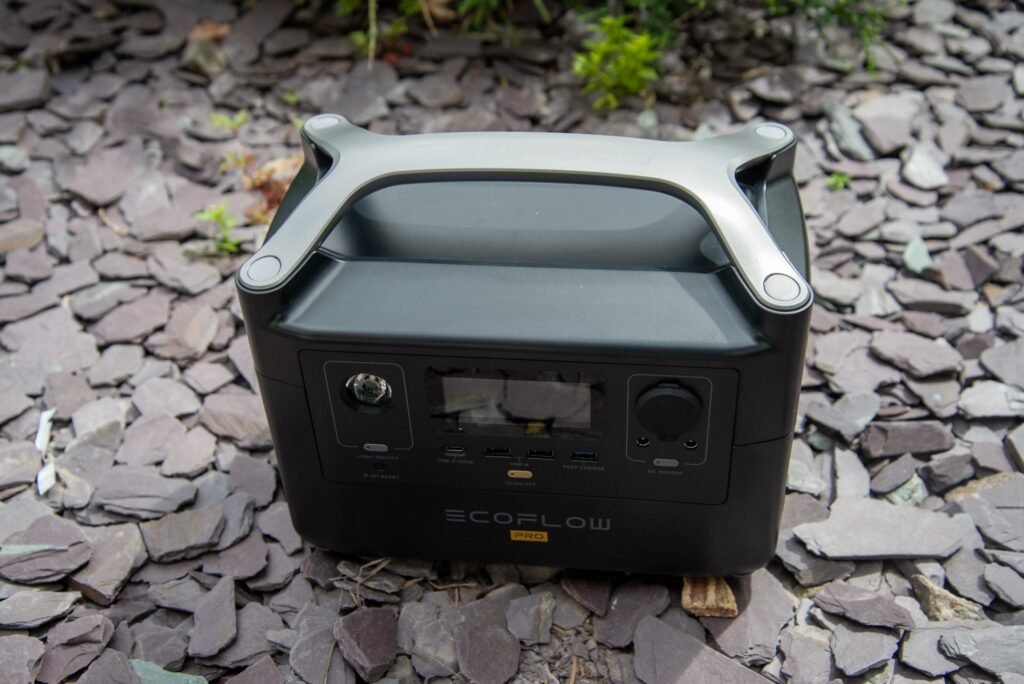Now Reading: How to Make Your Own Off-Grid Hygiene Products
-
01
How to Make Your Own Off-Grid Hygiene Products

How to Make Your Own Off-Grid Hygiene Products
In a world where self-sufficiency and sustainability are gaining evermore popularity, it’s no wonder that off-grid living has captured the imaginations of many. From generating your own electricity to growing your own food, people are eager to explore ways to disconnect from the grid and embrace a simpler, more eco-friendly lifestyle. But have you ever stopped to ponder how hygiene fits into this off-grid equation? Fear not, for we have unlocked the secrets to creating your very own off-grid hygiene products, ensuring that your pursuit of an independent existence remains harmonious with personal cleanliness and well-being. Prepare to embark on a journey that combines creativity, resourcefulness, and a touch of adventure as we delve into the world of off-grid hygiene solutions – allowing you to scrub, sanitize, and shine while fully embracing a life off the beaten path.
Table of Contents
- Creating Natural and Sustainable Options for Off-Grid Hygiene
- Understanding the Basics: Essential Ingredients for Homemade Hygiene Products
- From Toothpaste to Shampoo: DIY Recipes for Off-Grid Personal Care
- Eco-friendly Packaging: The Art of Sustainable Storage for Homemade Hygiene Products
- Ensuring Safety and Effectiveness: Pro Tips for Testing and Perfecting Your DIY Hygiene Products
- Q&A
- Wrapping Up

Creating Natural and Sustainable Options for Off-Grid Hygiene
For those seeking a more environmentally friendly approach to off-grid hygiene, there are numerous natural and sustainable options available. By embracing these alternatives, we can minimize our impact on the environment while still maintaining proper hygiene practices. Here are a few suggestions to get you started:
1. Composting toilets: These toilets are an excellent off-grid solution that utilizes organic matter to break down waste. By composting human waste, you can create nutrient-rich soil for gardening or landscaping. This eliminates the need for water-intensive flush toilets while providing a sustainable solution for waste management.
2. Eco-friendly toiletries: Swap out conventional toiletries with eco-friendly alternatives. Look for biodegradable soaps, shampoos, and toothpaste that are free from harmful chemicals. These products not only minimize environmental pollution but also promote a healthier lifestyle for you and the planet.
3. Reusable menstrual products: Women can contribute to a more sustainable future by switching to reusable menstrual products like menstrual cups or cloth pads. These options reduce waste, save money, and are more comfortable than traditional disposable products. Additionally, they are free from harmful chemicals found in many commercial menstrual products.
Remember, adopting natural and sustainable options for off-grid hygiene may require a little adjustment, but the benefits are both personal and environmental. By incorporating these practices, you can support a greener future while enjoying a clean and healthy lifestyle.
Understanding the Basics: Essential Ingredients for Homemade Hygiene Products
Creating your own homemade hygiene products can be a rewarding and sustainable way to improve your personal care routine. But where do you start? Understanding the basics and gathering the essential ingredients is key to making effective and safe products.
Choosing Natural Ingredients:
When it comes to homemade hygiene products, opting for natural ingredients is a great way to ensure the highest quality and avoid harsh chemicals. Consider including ingredients such as:
- Coconut oil: This versatile ingredient can be used in a wide range of products, from moisturizers to toothpaste, thanks to its hydrating and antibacterial properties.
- Essential oils: These concentrated plant extracts add fragrance and therapeutic benefits to your products. Lavender, tea tree, and peppermint oil are popular choices.
- Oats: Perfect for gentle exfoliation or soothing irritated skin, oats can be ground into a fine powder or used as a whole ingredient in face masks or scrubs.
The Power of Natural Preservatives:
Preserving homemade hygiene products is crucial to prevent bacterial growth and ensure their longevity. Here are some natural preservatives to consider:
- Vitamin E oil: Rich in antioxidants, vitamin E oil helps extend the shelf life of your products while providing added benefits for the skin.
- Grapefruit seed extract: This natural extract has antimicrobial properties, making it a common choice for preventing mold and bacteria growth in homemade cosmetics and hair care products.
- Witch hazel: Known for its astringent and antifungal properties, witch hazel is often used in toners and facial cleansers to keep them fresh and bacteria-free.
By familiarizing yourself with these basics and gathering the essential ingredients, you’ll be well on your way to creating homemade hygiene products that are effective, natural, and tailored to your specific needs.

From Toothpaste to Shampoo: DIY Recipes for Off-Grid Personal Care
DIY Recipes for Off-Grid Personal Care
Who says you need to rely on store-bought products for your personal care needs? With a little creativity and a dash of resourcefulness, you can make your own toothpaste, shampoo, and other essentials right in the comfort of your off-grid haven. Not only is this a fantastic way to reduce waste, but it also allows you to tailor your products to suit your individual preferences. Here are a few DIY recipes to spark your imagination:
- All-Natural Toothpaste: Combine 3 tablespoons of baking soda, 1 tablespoon of coconut oil, 1 teaspoon of sea salt, and a few drops of peppermint essential oil. Mix well until you achieve a smooth paste-like consistency. Voila, your pearly whites will thank you!
- Herbal Shampoo: Infuse a handful of dried herbs like rosemary, lavender, or chamomile in boiling water for 20 minutes. Strain the mixture and let it cool. Combine 1 cup of the herbal infusion with 1 cup of liquid castile soap, 1 tablespoon of aloe vera gel, and a few drops of your favorite essential oil. Blend gently, and you’ll have a heavenly scented shampoo in no time.
- Soothing Body Scrub: In a small bowl, mix 1 cup of Epsom salt, 1/2 cup of coconut oil, 1 tablespoon of honey, and a few drops of lavender essential oil. Combine until well incorporated. This delightful body scrub will leave your skin feeling silky smooth and rejuvenated.
With these DIY recipes and a sense of adventure, you can elevate your daily self-care routine while embracing a more sustainable lifestyle. So why not give it a try? Get creative and make your off-grid personal care products a true reflection of your unique style and values.

Eco-friendly Packaging: The Art of Sustainable Storage for Homemade Hygiene Products
When it comes to homemade hygiene products, sustainability goes beyond the ingredients used. The packaging plays a crucial role in minimizing our impact on the environment. So, why not complement your eco-conscious creations with equally eco-friendly storage options?
- Biodegradable Materials: Opt for packaging made from biodegradable materials like bamboo, cornstarch, or recycled paper. These alternatives provide a sustainable alternative to single-use plastics.
- Minimalist Design: Keep your packaging simple and minimalist, reducing the use of unnecessary materials and excess waste. Remember, less is more!
- Refillable Containers: Embrace the concept of refillable containers, allowing customers to replenish their products without generating additional waste. This solution promotes reuse and helps create a circular economy.
- Recyclability: Ensure that the packaging you choose is easily recyclable. Consider using materials with widely available recycling programs, such as glass or PET plastics.
- Bold Branding: Although sustainability is key, don’t be afraid to make your packaging visually appealing. Engage your customers by incorporating eye-catching designs and using eco-friendly printing methods with vegetable-based inks.
By picking eco-friendly packaging for your homemade hygiene products, you’re not only contributing to reducing plastic waste but also aligning your brand with an environmentally conscious lifestyle. Embrace the art of sustainable storage and showcase your commitment to both self-care and our planet.
Ensuring Safety and Effectiveness: Pro Tips for Testing and Perfecting Your DIY Hygiene Products
When it comes to DIY hygiene products, ensuring safety and effectiveness should always be a top priority. Whether you’re making your own hand sanitizer, toothpaste, or face mask, following these pro tips will help you test and perfect your creations:
- Research and educate yourself: Before diving into any DIY project, it’s crucial to do your homework. Familiarize yourself with the ingredients you plan to use, their properties, and any potential risks or contraindications. The more informed you are, the better equipped you’ll be to create a safe and effective product.
- Start small and test: It’s always wise to begin with a small batch when experimenting with new DIY hygiene products. This allows you to test the product on a small scale before committing to a larger batch. Pay attention to any adverse reactions or changes in texture, scent, or effectiveness.
- Seek expert advice: Don’t be afraid to consult professionals. Reach out to dermatologists, chemists, or experts in the field of hygiene products for advice and guidance. They can provide invaluable insights and help you troubleshoot any issues you may encounter.
- Keep records and document: As you experiment and make adjustments to your DIY hygiene products, maintain a detailed record of the ingredients used, measurements, and any changes made. This will help you identify patterns, track effectiveness, and make informed decisions for future iterations.
- Test on willing volunteers: If you’re comfortable doing so, ask friends or family members to try out your DIY creations. Their feedback can provide valuable insights and help you gauge the effectiveness and safety of your product from different perspectives.
By following these pro tips, you can feel confident in your ability to create safe, effective, and personalized DIY hygiene products. Remember, it’s important to always prioritize safety and thoroughly test your creations before incorporating them into your regular hygiene routine.
Q&A
How can I make my own off-grid hygiene products?
Making your own off-grid hygiene products is easier than you might think. With a few simple ingredients, you can create everything from homemade toothpaste to natural deodorant, allowing you to maintain personal hygiene even without access to modern amenities.
What are some essential off-grid hygiene products I can make?
There are several essential off-grid hygiene products you can make, such as toothpaste, mouthwash, shampoo, soap, deodorant, and even toilet paper. By using natural ingredients and simple recipes, you can stay clean and fresh while living off-grid.
What ingredients do I need to make off-grid toothpaste?
To make your own off-grid toothpaste, you will need baking soda, coconut oil, stevia powder, and essential oils for flavoring. Mix the ingredients together until smooth, and you’ll have a natural and effective toothpaste that doesn’t require running water to use.
Can I make my own off-grid deodorant?
Absolutely! You can make your own off-grid deodorant using ingredients like coconut oil, shea butter, baking soda, arrowroot powder, and essential oils. This homemade deodorant recipe not only keeps you smelling fresh, but it’s also free from harmful chemicals found in store-bought alternatives.
How can I create off-grid alternatives to commercial shampoo?
There are several off-grid alternatives to commercial shampoo that you can easily make. Baking soda mixed with water can act as a natural shampoo, while apple cider vinegar diluted with water can be used as a conditioner. These simple and eco-friendly options will leave your hair clean and free of chemicals.
Can I make my own off-grid soap?
Definitely! Making off-grid soap can be a fun and rewarding process. Combine natural oils such as olive oil, coconut oil, and shea butter with lye and water to create your own homemade soap bars. With some creativity, you can even add fragrance or exfoliants for a truly customized product.
Wrapping Up
In a world driven by convenience and consumerism, it’s refreshing to embark on a journey towards self-sufficiency. By learning how to create your own off-grid hygiene products, you’re taking a step towards a more sustainable and mindful lifestyle.
As we conclude this adventure into the realm of DIY hygiene, it’s important to remember that our choices have a powerful impact on our environment, but also on our well-being. By opting for natural, homemade alternatives, we are respecting the delicate equilibrium of our planet while also caring for our bodies in a way that modern commercial products often fail to do.
From crafting your own toothpaste with herbs plucked from your garden, to concocting refreshing and nourishing face masks using simple pantry ingredients, the possibilities are endless. Embrace the empowering feeling of creating something with your own hands, knowing that you have taken control of what goes onto your skin and ultimately, into our precious ecosystems.
Perhaps, as you embark on this journey, you’ll discover hidden talents and a newfound love for integrating sustainability into your everyday life. Share your findings and experiences with friends and family, spreading the knowledge and inspiration that you’ve gained.
Let us bid farewell to a world filled with excessive packaging and harmful chemicals, and open our arms to a future where simplicity reigns supreme. By embracing the art of creating our own off-grid hygiene products, we can truly unlock the potential to reconnect with both nature and ourselves.
So, go forth, fellow adventurers, armed with knowledge and a passion for sustainable living. May your homemade soaps, shampoos, and lotions bring you closer to the earth, and may you inspire others to follow in your footsteps. Remember, the power to make a positive change lies within your hands – and it all starts with your off-grid hygiene routine.
As an affiliate, my content may feature links to products I personally use and recommend. By taking action, like subscribing or making a purchase, you’ll be supporting my work and fueling my taco cravings at the same time. Win-win, right?
Want to read more? Check out our Affiliate Disclosure page.





